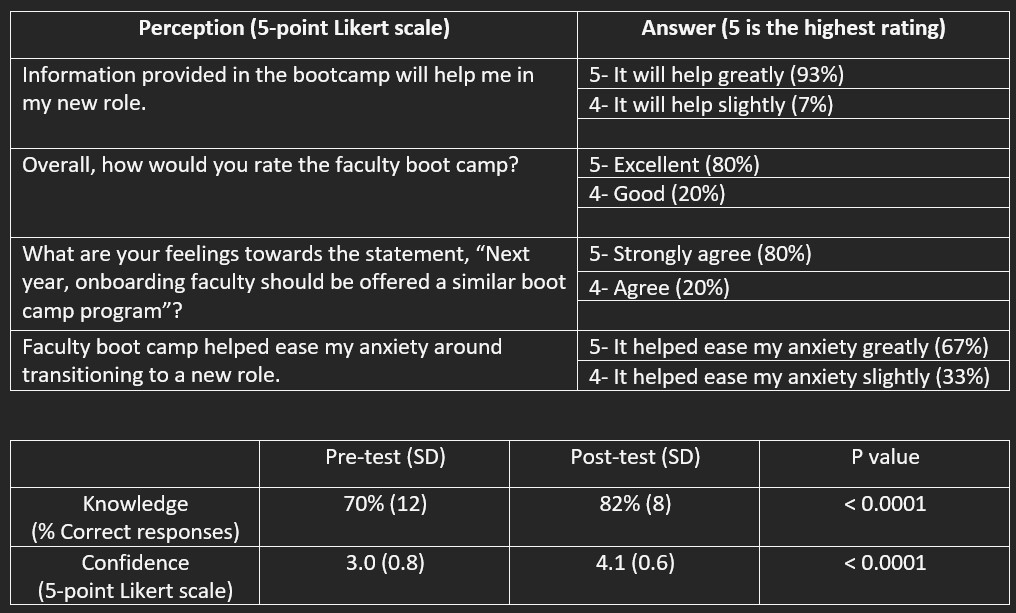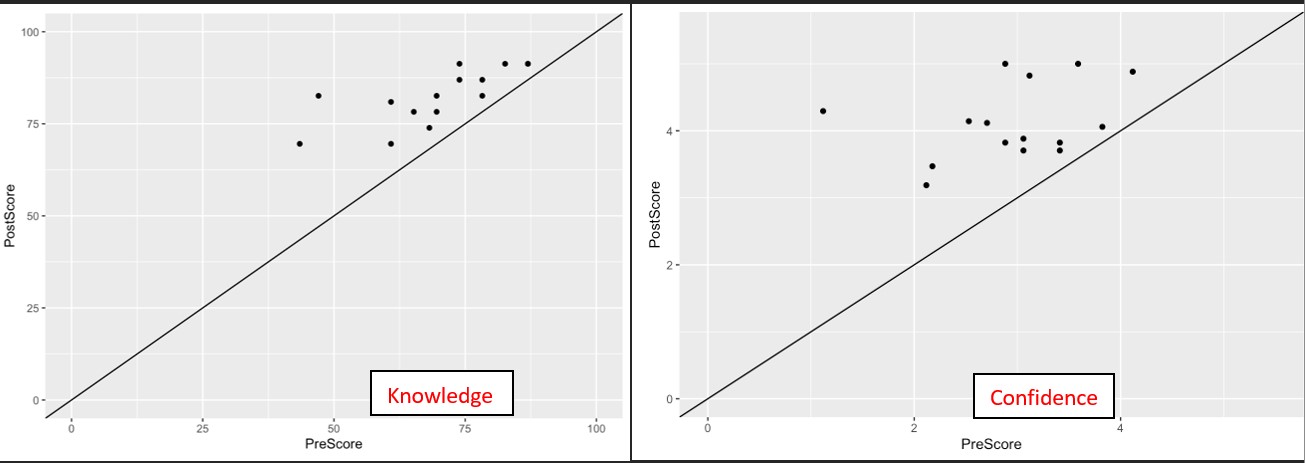Background: There has been relatively little published regarding the transition from residency to faculty appointments. The learning curve during this transition is steep given the sudden increase in responsibility and is fraught with anxiety and trepidation. Given the high burnout and attrition rates within Hospital Medicine divisions, we sought to combat this through a structured onboarding program for new faculty joining our division. We hypothesized that introducing professional development (PD) topics relevant to the transition, creating a sense of community among new faculty, and providing them with face time with the division’s leaders, would improve satisfaction and burnout rates and decrease attrition in the long run.
Methods: Our onboarding process spans 3 weeks and consists of an asynchronous online component, a one-week clinical apprenticeship, and a boot camp. The boot camp consisted of eleven, 50-minute sessions which are held in person, and span three consecutive afternoons in September which allows as many new faculty to attend as possible. The sessions consisted of both logistical issues unique to our work environment, guidance on local quality initiatives, skills necessary for educators, and faculty development resources. We conducted surveys prior to and after the completion of the boot camp. These surveys were designed to obtain pre- and post-intervention data with regards to the perception of confidence and knowledge of the topics presented during the boot camp. Here we present the retrospective pre-post analysis of the surveys conducted with the longer-term outcomes presented in a future article.
Results: 15 of the 17 new faculty participants completed the pre- and post-intervention surveys. 14/15 participants were in the 25–35-year-old range and 7/15 identified as female. 11/15 were starting a faculty position directly out of residency while 6/15 identified as international medical graduates. The bootcamp was well received by new faculty. On a 5-point Likert scale, 14/15 participants stated the information provided will help greatly in their new role, 12/15 rated the boot camp as excellent and strongly agreed that the boot camp should be offered to new faculty in subsequent years which were the highest ratings in their respective categories. (Table 1)Data analysis showed that all learners improved their knowledge with the proportion of correct responses showing an increase from 70% pre-test to 82% post-test, p < .0001. Faculty confidence in tackling the topics covered during the bootcamp showed a statistically significant improvement with a pre-test confidence score of 3.0, and a post-test value of 4.1, p <.0001. (Table 1 and image 1)
Conclusions: Despite a relative paucity of published content in the realm of transition from resident to faculty in Hospital Medicine, many large, academic divisions have developed different methods of early PD in an attempt to ease this key career transition. Above is our contribution to this growing body of literature which shows favorable improvements in short term outcomes such as perception as well as knowledge. One of the drawbacks of studying PD is some important outcomes such as sense of being are more nebulous and difficult to capture using standard outcome measures. We will continue to refine our faculty boot camp sessions and investigate long term outcomes to hopefully show a financial incentive for divisions to invest in such efforts.


